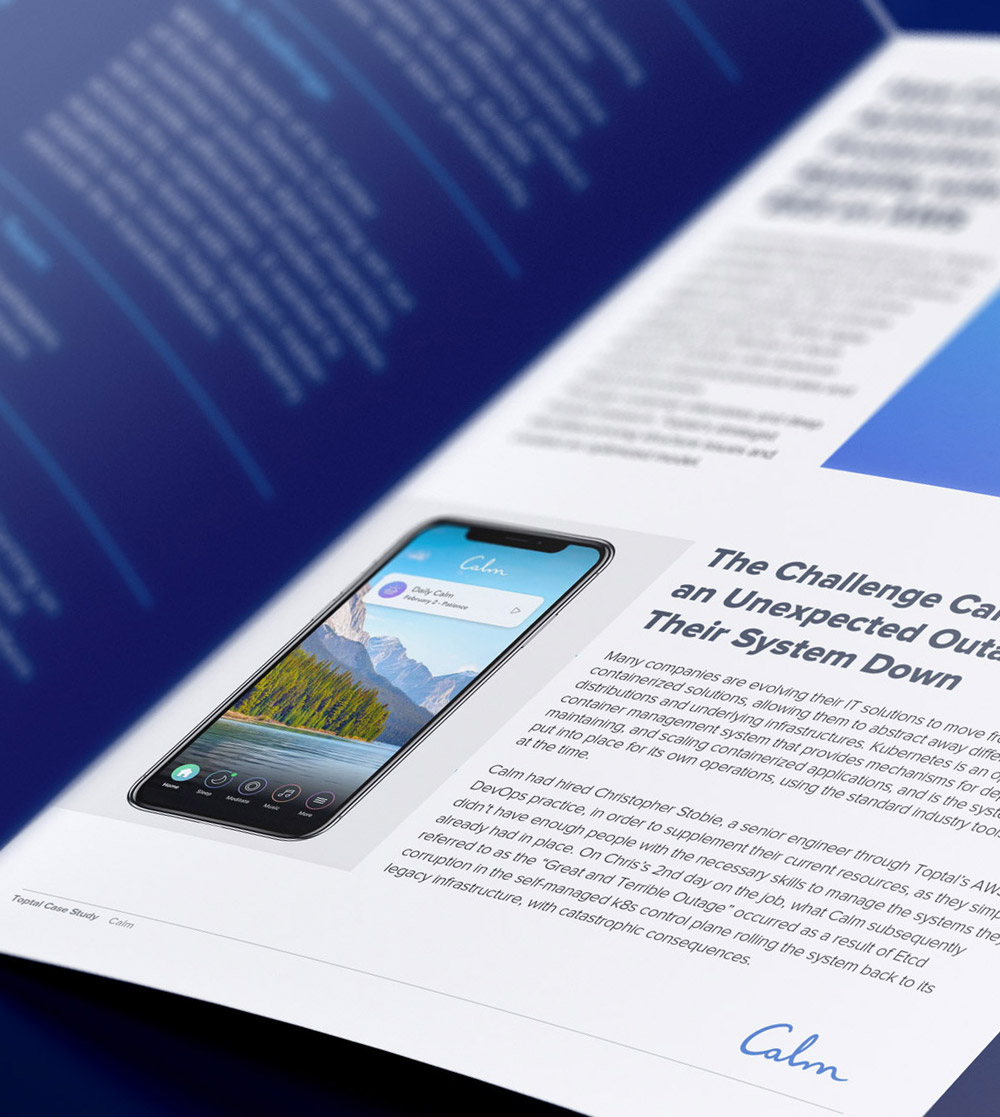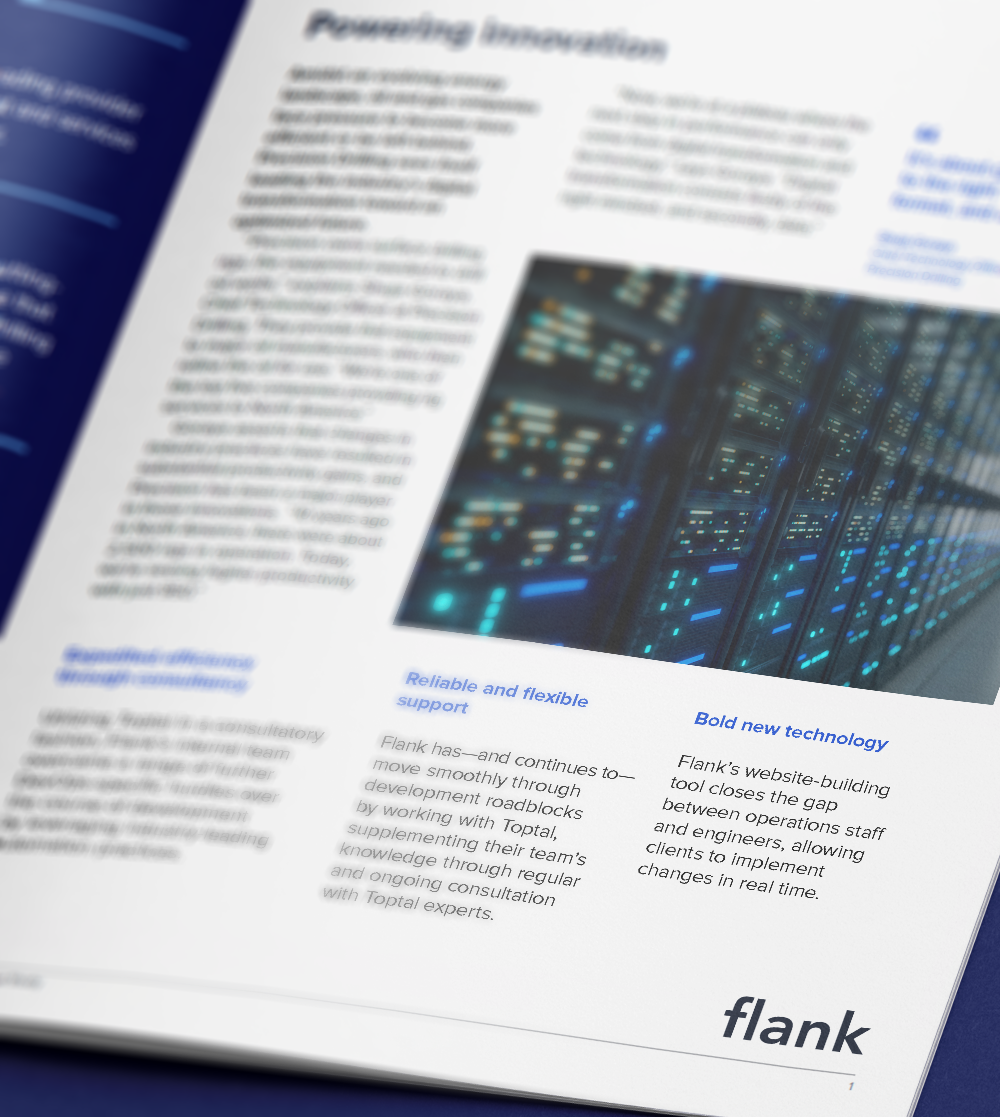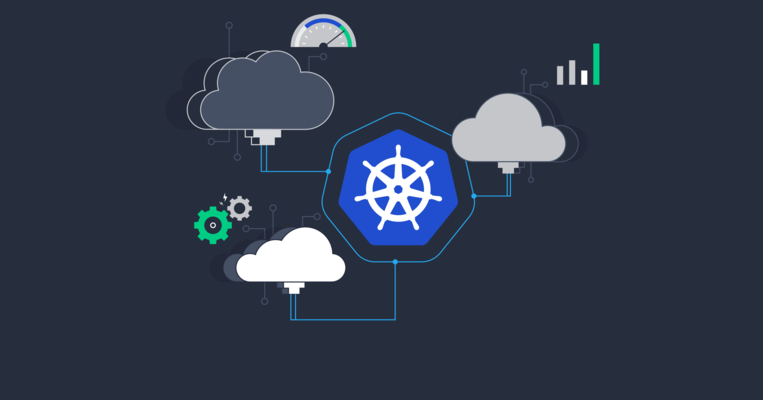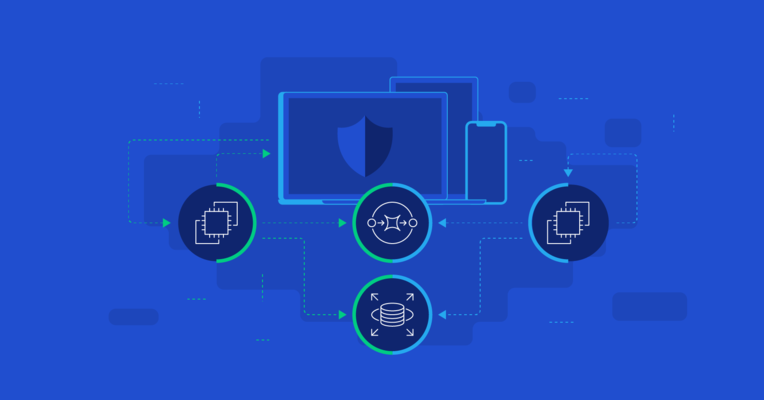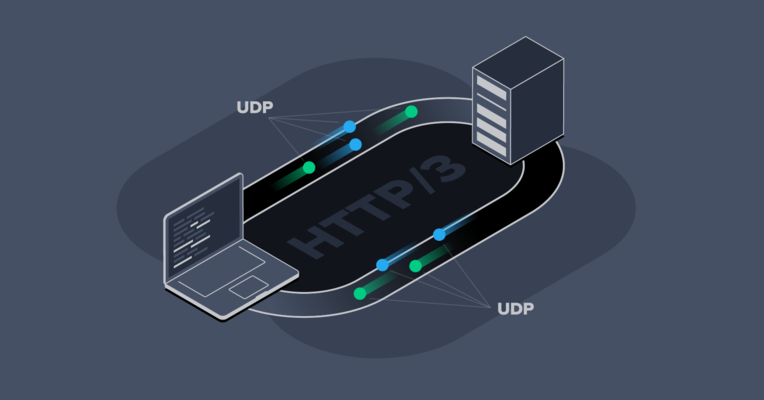
Hire DevOps Engineers
Hire the Top 3% of Freelance DevOps Engineers
Hire DevOps developers, programmers, experts, and specialists on demand. Top companies and startups choose DevOps engineers from Toptal for building and managing DevOps infrastructure, developing CI/CD pipelines, system monitoring, cloud automation, and more.
No-Risk Trial, Pay Only If Satisfied.
Hire Freelance DevOps Engineers
Andres Gonzalez
Andres is a skilled engineer with over 15 years of experience across many facets of technology, including DevOps, web development, and system administration. At Amazon Web Services, he led the team that added new capacity to the AWS Edge network throughout Asia pacific. He is an avid believer in cloud native solutions that are appropriately sized, cost-effective, and deliver outstanding performance. Andres has enjoys working with organizations of all sizes, from startups to global enterprises.
Show MoreRyan Cocks
Ryan is experienced in developing reliable and scalable production cloud systems. He specializes in SRE, DevOps, microservices, cloud architecture, and observability. He has a solid technical background as a back-end developer. He has good soft skills, is self-motivated, and is comfortable networking to achieve project goals. Ryan has an excellent ability to understand the business needs behind requirements and is able to program in several languages.
Show MoreBen Mishkin
Ben is a seasoned engineering leader with 20 years of experience in cloud infrastructure, operations, DevOps, and SecOps. He specializes in ML/AI and LLMs and holds certifications in AWS and GCP. He has led teams across various industries, including healthcare, social networks, eCommerce, and video games. With computer science, machine learning, and finance expertise, Ben has HIPAA, PCI, and SOC2 compliance experience. He excels in writing code, buildouts, operations, and migrations.
Show MoreMichelle Tsacheva
Michelle is passionate about scaling projects and prototyping and starting projects quickly. She uses automation, process streamlining, and lean methodologies to get easy and consistent results quickly. Michelle has a background as a web developer and systems/DevOps engineer and a total of 18 years of professional experience in companies ranging from 10 to over 100 thousand employees.
Show MoreAllan Guan
As a solution architect, technology leader, and consultant, Allan has over 15 years of proven success in designing innovative solution architecture for clients in the public and private cloud across different industries. His technical expertise includes cloud platforms, DevOps, site reliability, big data, SaaS software development, and process automation. Allan excels in leading large-scale and complex digital enterprise transformation initiatives.
Show MoreAndrew Beveridge
Andrew is a forward-thinking technical leader and DevOps specialist with over 10 years of industry experience. As an engineer, he's focused, creative, and hard-working, able to build best practice solutions from complex customer requirements. As a technical leader, he's pragmatic, data-driven, and decisive, preferring to demonstrate best practices by leading by example with hands-on work. He's an AWS Certified Solutions Architect with an MEng in software engineering.
Show MoreFabrice Triboix
Fabrice is a DevOps engineer with eight years of experience with AWS and six years with both Kubernetes and Terraform. He is very keen on automation (CI/CD, infrastructure as code) and solving complex problems with simple solutions. He worked for clients such as NatWest Bank, Cisco, Topps, the UK Home Office, medium-sized companies, and many startups. His greatest joy is to see his work actually being used in production and making a positive impact on his clients' businesses.
Show MoreTochukwu Nwoko
Tochukwu is a certified Kubernetes administrator with a wealth of experience in Linux, DevOps, Cloud Security, AWS, Python, Go, and Terraform and a proven track of excellence in designing, implementing, and maintaining highly scalable, secured, high-performing, resilient, and efficient infrastructure.
Show MoreSatyanarayan Mishra
Satyanarayan has 18 years of expertise in the retail, banking, healthcare, and manufacturing sectors. He is a certified cloud architect, network engineer, and DevOps architect focusing on Google Cloud and Azure. His extensive experience includes migrating legacy eCommerce loyalty and mainframe applications and modernizing and rehosting them in Azure. Satyanarayan also works on a supply chain inventory visibility project using Google Cloud.
Show MoreAjit Rajdeosingh
Ajit has over 13 years of experience in the IT industry with expertise in cloud architecture, DevOps, system testing, and designing and building large-scale enterprise and service provider IP/MPLS networks. He has in-depth knowledge of building and operating complex IT systems with distributed architecture. His roles have included network security architect, network architect, software developer, and solutions architect.
Show MoreAly Ragab
Aly has been a DevOps and DevSecOps Engineer for the past six years, specializing in planning, designing, configuring, and implementing a deep level of security. Aly has worked in the GRC and Pen Testing culture and implementation. Before this, he was a Linux and Unix administrator for three years. Aly's areas of expertise include AWS, Kubernetes, MySQL, MongoDB, ELK, Go, HashiCorp Vault, Terraform, and more.
Show MoreDiscover More DevOps Engineers in the Toptal Network
Start HiringA Hiring Guide
Guide to Hiring a Great DevOps Engineer
With the complexity of modern software, the deployment process can be a challenge. DevOps engineers ensure smooth and reliable delivery through automation, collaboration, and continuous feedback. This hiring guide walks you through how to find and evaluate the right DevOps engineer for your project.
Read Hiring GuideDevOps Hiring Resources
... allows corporations to quickly assemble teams that have the right skills for specific projects.

Despite accelerating demand for coders, Toptal prides itself on almost Ivy League-level vetting.









How to Hire DevOps Developers Through Toptal
Talk to One of Our Client Advisors
Work With Hand-selected Talent
The Right Fit, Guaranteed
EXCEPTIONAL TALENT
How We Source the Top 3% of DevOps Engineers
Our name “Toptal” comes from Top Talent—meaning we constantly strive to find and work with the best from around the world. Our rigorous screening process identifies experts in their domains who have passion and drive.
Of the thousands of applications Toptal sees each month, typically fewer than 3% are accepted.
Toptal DevOps Case Studies
Discover how our DevOps engineers help the world’s top companies drive innovation at scale.



Capabilities of DevOps Engineers
Our DevOps engineers optimize your software delivery framework by providing reliable infrastructure management, automated testing, continuous deployment, and seamless integration.
Containerization and Orchestration With Docker and Kubernetes
Cloud Infrastructure Management and Optimization
Infrastructure as Code (IaC)
Continuous Integration and Continuous Deployment (CI/CD)
Disaster Recovery and High-availability Planning
Microservices Architecture
Monitoring, Logging, and Alerting Solutions
Security and Compliance
Automated Testing and Quality Assurance
Configuration Management
FAQs
How much does it cost to hire a DevOps engineer?
The cost associated with hiring a DevOps engineer depends on various factors, including preferred talent location, complexity and size of the project you’re hiring for, seniority, engagement commitment (hourly, part-time, or full-time), and more. In the US, for example, Glassdoor’s reported average total annual pay for DevOps engineers is $131,000 as of August 2024. With Toptal, you can speak with an expert talent matcher who will help you understand the cost of talent with the right skills and seniority level for your needs. To get started, schedule a call with us — it’s free, and there’s no obligation to hire with Toptal.
Are DevOps engineers in demand?
DevOps plays an important role in almost every software development process. Demand for DevOps engineers is extremely high and is increasing as more companies adopt the DevOps process and tools. Because DevOps lends a hand in almost every process in the software development life cycle, hiring an experienced DevOps specialist to help navigate complexities can be highly beneficial to many projects.
How quickly can you hire with Toptal?
Typically, you can hire DevOps engineers with Toptal in about 48 hours. For larger teams of talent or Managed Delivery, timelines may vary. Our talent matchers are highly skilled in the same fields they’re matching in—they’re not recruiters or HR reps. They’ll work with you to understand your goals, technical needs, and team dynamics, and match you with ideal candidates from our vetted global talent network.
Once you select your DevOps expert, you’ll have a no-risk trial period to ensure they’re the perfect fit. Our matching process has a 98% trial-to-hire rate, so you can rest assured that you’re getting the best fit every time.
How do I hire DevOps engineers?
To hire the right DevOps specialist, it’s important to evaluate a candidate’s experience, technical skills, and communication skills. You’ll also want to consider the fit with your particular industry, company, and project. Toptal’s rigorous screening process ensures that every member of our network has excellent experience and skills, and our team will match you with the perfect DevOps engineers for your project.
How are Toptal DevOps developers different?
At Toptal, we thoroughly screen our DevOps engineers to ensure we only match you with the highest caliber of talent. Of the more than 200,000 people who apply to join the Toptal network each year, fewer than 3% make the cut.
In addition to screening for industry-leading expertise, we also assess candidates’ language and interpersonal skills to ensure that you have a smooth working relationship.
When you hire DevOps programmers with Toptal, you’ll always work with world-class, custom-matched DevOps engineers ready to help you achieve your goals.
What does a DevOps engineer do?
The purpose of DevOps is to streamline the software delivery process and facilitate collaboration between software development and IT operations. The typical responsibilities of a DevOps engineer include automating build, testing, and deployment processes, monitoring application and infrastructure health, and implementing security best practices. DevOps engineers often implement a continuous integration and continuous delivery (CI/CD) pipeline to automate testing and deployments. While specific responsibilities vary between organizations, the goal of all DevOps teams is to drive collaboration, efficiency, and reliability in the software development process.
Can you hire DevOps programmers on an hourly basis or for project-based tasks?
You can hire DevOps experts on an hourly, part-time, or full-time basis. Toptal can also manage the entire project from end-to-end with our Managed Delivery offering. Whether you hire a DevOps engineer for a full- or part-time position, you’ll have the control and flexibility to scale your team up or down as your needs evolve. Our DevOps engineers can fully integrate into your existing team for a seamless working experience.
What is the no-risk trial period for Toptal DevOps experts?
We make sure that each engagement between you and your DevOps engineer begins with a trial period of up to two weeks. This means that you have time to confirm the engagement will be successful. If you’re completely satisfied with the results, we’ll bill you for the time and continue the engagement for as long as you’d like. If you’re not completely satisfied, you won’t be billed. From there, we can either part ways, or we can provide you with another DevOps engineer who may be a better fit and with whom we will begin a second, no-risk trial.

How to Hire DevOps Engineers
Ivan is a system architect and CTO who has founded multiple businesses. He has experience architecting and implementing server-side solutions, including distributed platforms such as blockchains, chat servers, and game back ends. Ivan has a PhD in computer engineering from the University of Zagreb and has overseen many DevOps projects and teams in his more than 20 years of experience in the field.
Previous Role
CTOPreviously at

The Demand for DevOps Developers Is Increasing
DevOps, a combination of “development” and “operations,” is a methodology that strives to enable collaboration and coordination between teams that develop, deploy, and support software applications. The size of the DevOps market is projected to increase significantly, growing from an estimated $10.4 billion in 2023 to $25.5 billion by 2028. Gartner predicts that by 2026, about 80% of IT-related organizations are likely to establish platform engineering teams, which will provide reusable services, components, and tools internally, with the goal of streamlining the software delivery process. This further establishes DevOps as a distinct—and increasingly important—company division.
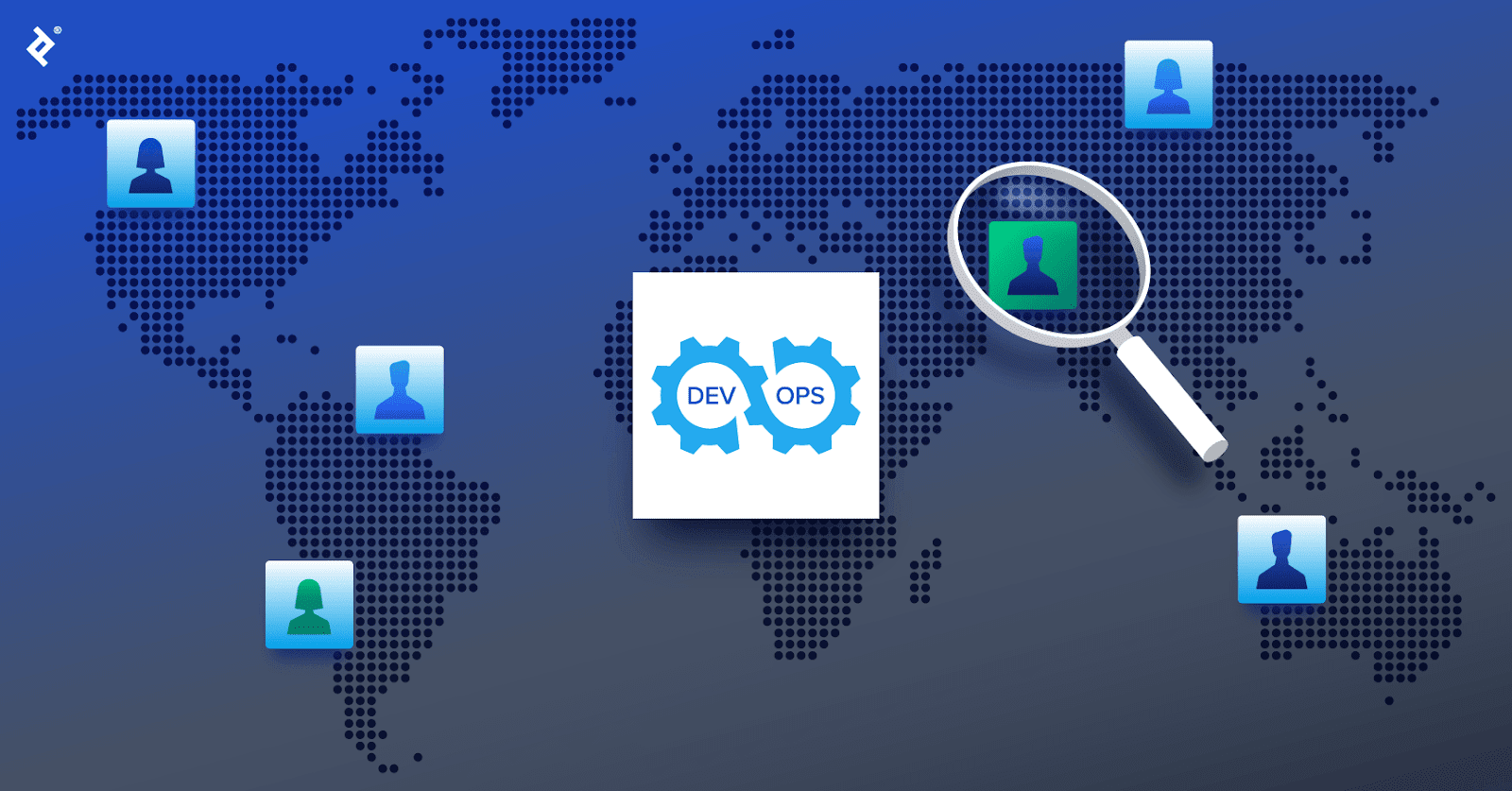
These DevOps engineering professionals prepare the infrastructure to run the application and should have at least a basic understanding of how to configure firewalls and secure the app. They talk to project managers, developers, testers, and the IT operations team to figure out how to automate the project to make it faster and more reliable.
In general, the role requires more than just entry-level experience. Its duties cover a wide range of tasks and technologies, making a diverse skill set and a “jack-of-all-trades” mindset essential. DevOps specialists are frequently called upon to use CD tools to automate the testing and deployment of an application. This requires familiarity with the application stack, as DevOps engineers often provide feedback on implementing features that facilitate automation and standardization, as well as monitoring and disaster recovery. The combination of specialized skills and the expertise level required for these tasks makes it challenging to find quality DevOps experts for hire.
This guide provides insights on how to hire a DevOps engineer, including tips on how to write a job description, as well as which questions to ask during interviews. It also features an overview of the required skills and tools that DevOps engineers use to automate and streamline the deployment process.
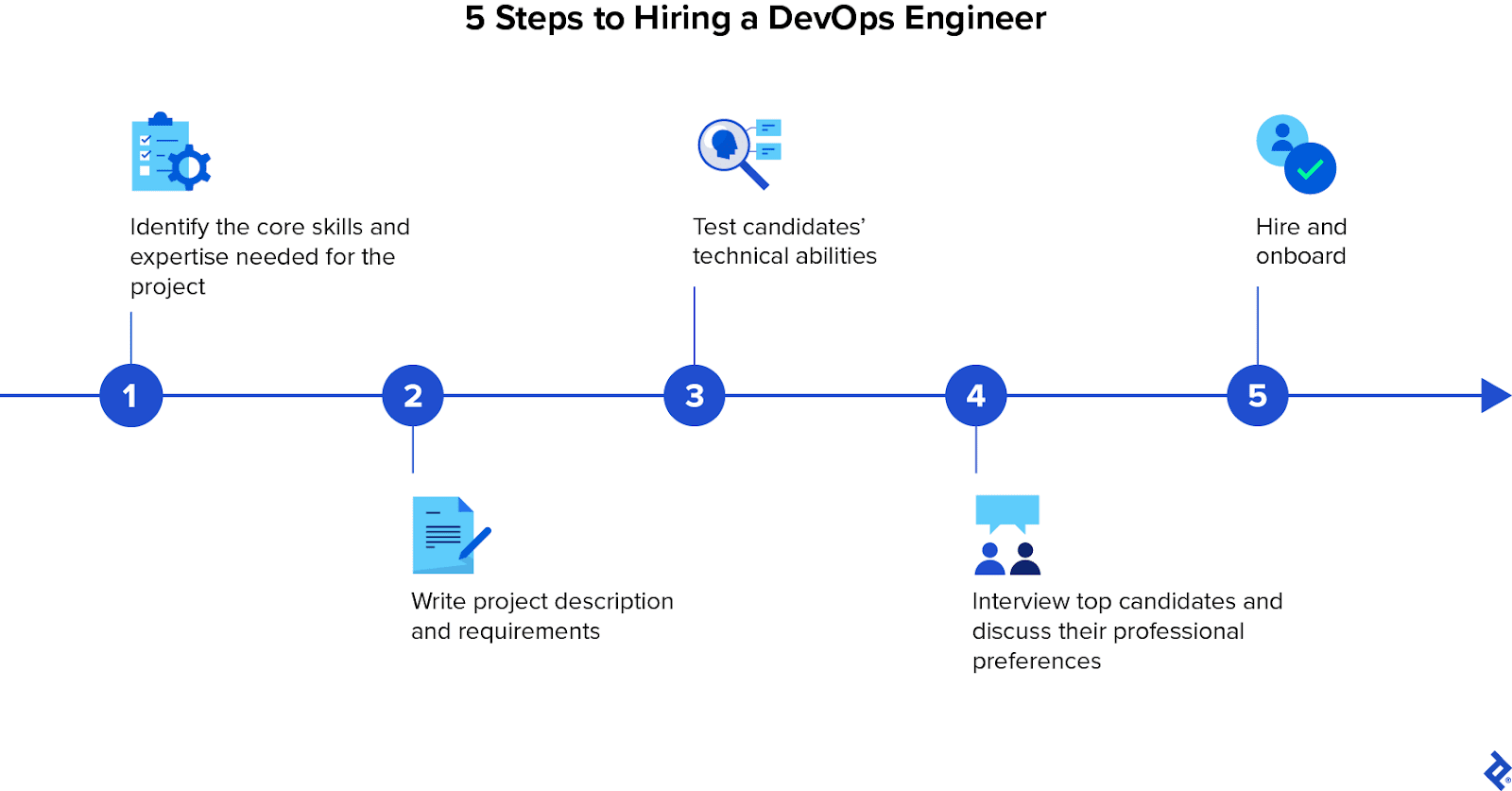
What Attributes Distinguish Quality DevOps Engineers From Others?
There are several key attributes that define highly skilled DevOps engineers, including excellent communication skills, problem-solving, and strategic vision.
Because enabling collaboration between different teams and stakeholders is one of their core responsibilities, solid communication skills are mandatory. DevOps engineers are skilled diplomats, keeping everyone on the same page and fostering a productive environment.
They are also problem-solvers; integrating several custom applications into a smooth and automated process is no small task. DevOps engineers are adept at unearthing the root causes of problems or bottlenecks and devising innovative solutions. They are experts at building automated workflows to streamline the software delivery life cycle.
Finally, DevOps specialists are strategic visionaries. A major part of their roles and responsibilities is to understand the big picture and align the goals of the development team with the initiatives of the organization.
Core Technology Skills for DevOps
In terms of technical skills, candidates should be evaluated based on their knowledge of the application’s technology stack and the scale at which it will be deployed. DevOps tools are effectively a continuation of an application’s technology stack for production deployment. There are two major technology verticals that applications are deployed on: Windows and Linux.
Candidates working with Windows should have expertise in Microsoft’s technology stack, which includes the .NET framework, SQL Server, the SharePoint and Web API platforms, and Azure. Candidates should also be familiar with C# and F#, languages created by Microsoft that provide seamless interoperation with the .NET ecosystem.
For Linux, there are several differentiated app development stacks on top of the general Linux stack, including Python, Django, Ruby on Rails, Java, Node.js, and Go. They are similar enough that a Linux specialist will probably be effective with all of them, but each of the stacks has differences in required resources (memory versus CPU) and maintenance tasks. It’s best to hire a DevOps engineer who has previous experience with a specific stack.
Aside from vertical-specific technology skills, DevOps experts should be versed in cloud, automation, testing, and security topics:
Cloud: Modern DevOps practices rely heavily on cloud technologies. Major cloud providers, such as AWS, Azure, and GCP provide tools and services that DevOps engineers can leverage for infrastructure procurement, testing, scaling, and management. DevOps engineers should have an understanding of cloud architectures, in addition to cloud concepts such as IaaS (infrastructure as a service), PaaS (platform as a service), and SaaS (software as a service). DevOps engineers should also have experience using the tools and services offered by cloud providers in past deployments.
Automation: One of the cornerstones of DevOps is automation. With modern DevOps practices, many tasks throughout the software development life cycle (SDLC) are automated, including infrastructure provisioning, testing, and code deployment. Not only does automation reduce manual effort, it also improves consistency and reduces the chance of human error. Automation streamlines processes and improves efficiency. DevOps engineers require a keen eye for identifying tasks that can be automated and the knowledge to build reliable pipelines.
Testing: Testing plays an essential role in the SDLC. Any time there is a code change, extensive testing must be done to ensure the quality and functionality of applications. DevOps engineers are heavily engaged in the testing process and should be adept at utilizing testing frameworks like Selenium, Pytest, and JUnit to develop and incorporate automated testing into the deployment pipeline.
Security: With cyberthreats on the rise, DevOps engineers need to be conscious of security throughout the entire software development process. Software applications, infrastructure, and sensitive data must be protected from unauthorized access, and vulnerabilities detected and addressed before they become issues in production. For deployed applications, security incidents must be identified and contained as quickly as possible, with the next release updated to prevent reoccurrence. DevOps engineers should have in-depth knowledge about secure coding and infrastructure hardening, in addition to experience with firewalls, encryption, and intrusion detection systems.
CI/CD: When hiring a DevOps developer, their experience and expertise with continuous integration and continuous delivery (CI/CD) should be a primary consideration. The integration of CI/CD into the software deployment process benefits applications in virtually every environment. CI/CD automates the testing and deployment of new code, increasing quality and enabling the shipping of new features and bug fixes much more quickly. CI/CD reduces risk because each deployment contains fewer changes and, if necessary, changes can be rolled back easily. Tools and frameworks used by DevOps engineers for continuous integration include GitHub Actions, Bitbucket Pipelines, Jenkins, CircleCI, AWS CodePipelines, and Azure Pipelines.
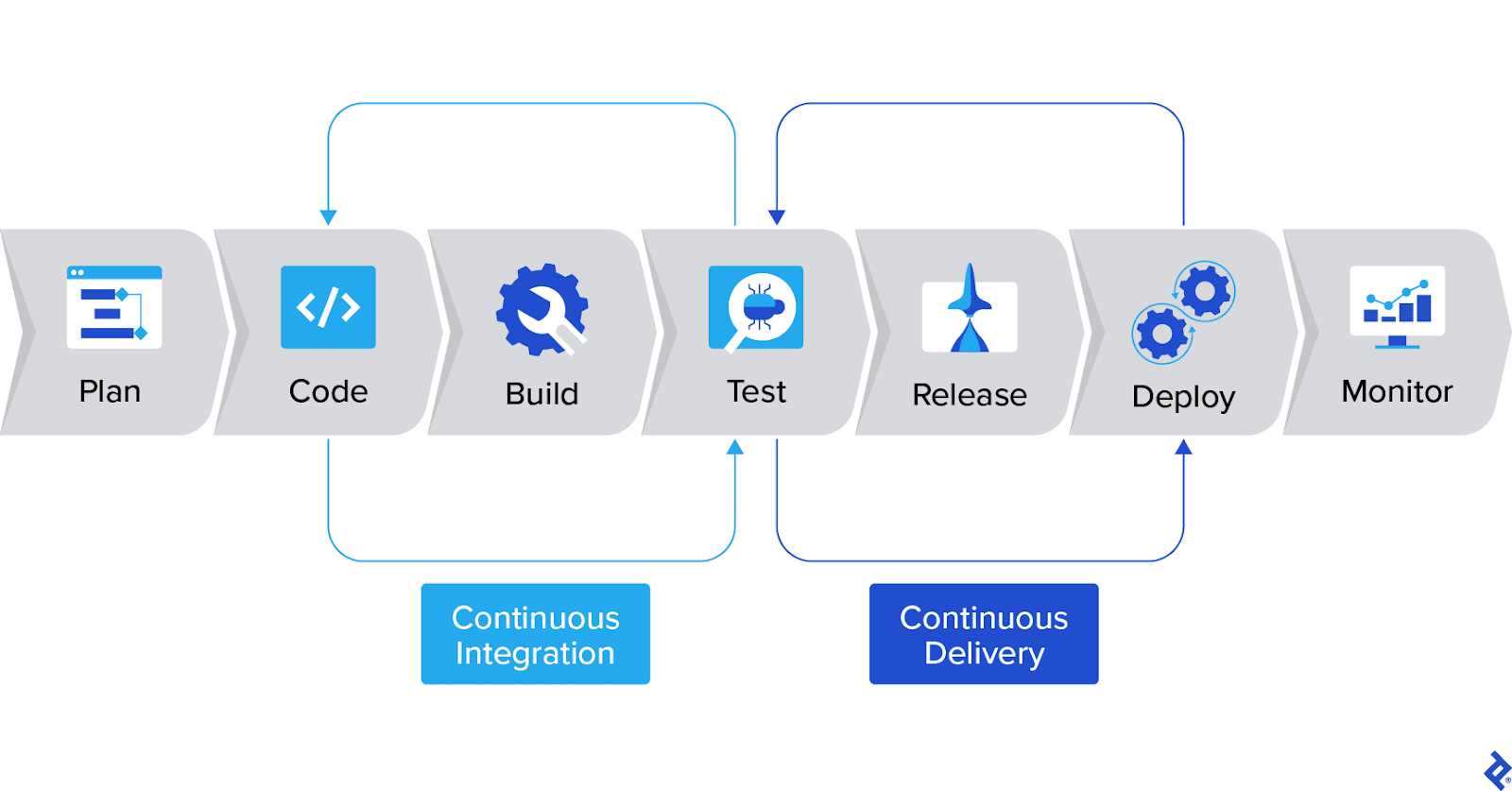
Complementary Technology Skills for DevOps
There are several programming and scripting languages that DevOps engineers use when automating tasks and managing infrastructure. While expertise in every language is typically not required, working knowledge of several common languages makes it easier for an engineer to adapt when environments change:
Python: Due to its readability, versatility, and cross-platform compatibility, Python is becoming increasingly popular with DevOps engineers. Python’s syntax is clear and concise, making it easy to learn and lending itself well to scripting automated tasks. Python scripts can be used to automate tasks such as unit testing, infrastructure provisioning, and managing configurations. Python also has a wealth of readily available libraries, frameworks, and resources, many specifically designed for DevOps tasks, including Ansible, Fabric, and Terraform.
Java: Java may not be as popular as Python in DevOps, but it remains relevant due to its significant enterprise adoption. Many applications rely on Java due to its robustness and maturity, and DevOps developers are often required to work with Java applications. Additionally, Java is frequently used to develop microservices, and DevOps engineers should have familiarity with the frameworks used to build them, such as Spring Boot and Eclipse Jersey.
Shell: Many of the scripts that DevOps engineers use to automate processes are executed in a command-line interpreter called the shell. Shell scripts are essentially commands written in plain text that are executed consecutively. There are several different shells available; two of the more popular modern shells are Bash and PowerShell. In particular, Bash is the default shell on most Linux distributions, and as such, Bash scripting is required knowledge for any DevOps engineer working in the Linux domain. Many DevOps tools, including Terraform, Docker, and Ansible, use Bash scripts for configuration, deployment, and execution.
Ruby: Ruby is a newer language that is growing in popularity with DevOps developers who frequently use it for scripting and automation tasks. Like Python, Ruby has an easy-to-learn syntax and is cross-platform compatible. It also features a growing library of DevOps tools, including Rake, Chef, Nanobox, and Puppet. Ruby skills are beneficial for DevOps engineers, not only for scripting and automation, but also for supporting the numerous applications developed with Ruby on Rails.
Go: You may occasionally hear a DevOps developer say “Go is the new Python.” Go, also known as Golang, is playing an increasingly important role in DevOps. Go is designed for speed and efficiency, and has built-in support for handling concurrent tasks and parallel processing. Go has a rapidly growing ecosystem, offering libraries and frameworks designed specifically for DevOps tasks. Many DevOps tools, including Docker, Kubernetes, and Terraform, were built with Go in order to leverage its performance, efficiency, and cross-platform capabilities. While Go is not required for every role, its performance and features make it a valuable tool in any DevOps developer’s toolkit.
How Can You Identify the Ideal DevOps Engineer for You?
Several factors must be considered when identifying the ideal DevOps engineer to hire for your specific project, including knowledge of your platform, infrastructure, and technology stack, your team structure and dynamics, existing processes for testing, deployment, and support, and level of experience. We recommend defining the above requirements for a DevOps engineer first—that will then help you identify the appropriate candidate experience level for your initiative.
How to Distinguish Between Junior, Mid-level, and Senior DevOps Engineers
Junior DevOps engineers are able to design and implement straightforward deployment architectures, as well as follow plans developed by more senior engineers to implement complex architectures. They can also implement basic automation tasks and provide support for the infrastructure. In their day-to-day work, junior DevOps engineers manage app deployments, communicate with developers and other stakeholders, and build tools and infrastructure that aid deployment, troubleshooting, and technical support.
Mid-level DevOps engineers are capable of working independently, executing established strategies, and developing complex deployment architectures. Some of the daily duties of a mid-level DevOps engineer include setting up and managing CI/CD pipelines, troubleshooting production issues, writing and maintaining automation scripts, and managing infrastructure.
Senior DevOps engineers have a deep understanding of DevOps practices and can be called upon to shape an organization’s DevOps strategy. Their expertise lies in analyzing the applications and infrastructure, and implementing a deployment architecture that seamlessly integrates the application’s needs with the overall goals of the business. They have experience with a wide range of platforms and can give valuable insight about the trade-offs between functionality and reliability. Senior DevOps engineers are authorities in areas like performance optimization, advanced automation, security, and cloud-native technologies, often leading and mentoring junior and mid-level engineers.
Senior DevOps engineers are also well versed in cost allocation. Major cloud platforms like AWS, GCP, and Azure are flexible and provide powerful features, but different platforms can have very different costs for similar types of deployments. Even if an application is deployed on a VPS-based (virtual private server) infrastructure instead of a managed cloud, costs and reliability can vary wildly.
Business Use Cases: Large- vs. Small-scale Applications
An application’s scale, often expressed as its number of active users, is generally limited by its underlying architecture. In some cases, DevOps practices and tools can improve scalability; however, they are not able to compensate for a poorly architected application. Smaller-scale environments, such as internal company apps, smaller web shops, or B2B businesses, often use different DevOps solutions than larger-scale and B2C platforms. As a result, there are different skill requirements when hiring for these two use cases.
Streamlining Workflows for Small-scale Applications: A small-scale application can be effectively managed by a DevOps expert familiar with commonly available tools. These include Ansible and Docker for infrastructure automation, Git for version control, and Prometheus, Grafana, and ELK (Elasticsearch, Logstash, and Kibana) for monitoring. For scripting, the languages used are typically Bash or Python. These tools should be enough for a developer to manage applications, even ones built on an older stack like LAMP.
Optimizing Large-scale Applications for High-volume Traffic: Achieving massive scalability requires a different approach. The focus of developers working in a large-scale environment is automating the horizontal scaling of identical instances, usually paired with implementing a flexible architecture, such as microservices. DevOps experts working on microservices leverage tools like Kubernetes or Terraform, or cloud-specific offerings such as AWS ECS, AWS CloudFormations, Google Cloud Deployment Manager, and Azure Resource Manager. While large-scale environments don’t inherently require it, deploying on the cloud is often more time-effective, especially when combined with the security best practices offered by the major platforms.
Large-scale environments typically require a team of DevOps engineers, whereas a single engineer may be enough for a smaller environment. In addition, a large environment often requires engineers to be on call in different time zones to handle emergencies that happen in different regions.
How to Write a DevOps Engineer Job Description for Your Project
A DevOps engineer job description should contain detailed information about the project, including its scope and scale, the tech stack, and relevant infrastructure. In some cases, a company will hire DevOps programmers to join an existing DevOps team with an existing infrastructure; while in other cases, DevOps engineers might be hired to develop a deployment architecture from scratch. All relevant DevOps engineer skills should be identified, including the project’s programming languages and frameworks, cloud providers, and databases.
The job description should also contain a high-level description of the project and its business goals, identifying any required domain knowledge. For startups, it’s helpful to include information about the company’s product and business goals. Include information about the in-house teams that the candidate will be working with, as well as an overview of the company to ensure a cultural fit. It is also helpful to point out soft skills that you consider essential to the job; these might include communication, problem-solving, and adaptability. Mention the job’s location; as many modern applications are deployed on remote infrastructures, companies often hire remote DevOps engineers. Likewise, specify if the position is part- or full-time. Finally, list the perks and benefits that the company offers. The more focused the job description is, the easier it will be to hire the right DevOps specialist, and the smoother onboarding will be.
How to Prepare DevOps Interview Questions
DevOps interview questions should assess both the candidate’s technical expertise and practical experience. Match technical questions to the candidate’s skill set and resume, and discuss recent projects and challenges to gain insight into their problem-solving approaches. The following questions can lead to discussions relevant to a DevOps role during your hiring process:
What is the key purpose of DevOps?
The primary objective of DevOps is to bridge the gap between the software development and IT operations teams in order to deliver more reliable and higher quality software more efficiently. DevOps encourages collaboration and communication, ensuring that team members are able to work together efficiently. DevOps leverages automation, rapid iteration, and constant feedback to streamline the software deployment process. While this question doesn’t directly evaluate technical skills, it gives the candidate an opportunity to share their big-picture vision of DevOps and its core principles.
What is the DevOps life cycle for a typical application?
Asking about a typical application’s DevOps life cycle gauges the candidate’s understanding of the core principles of DevOps and modern software deployment practices. DevOps relies heavily on automation for efficiency and reliability, with CI/CD playing a key role. The continuous integration (CI) aspect of the CI/CD pipeline ensures that any changes to the code are quickly integrated and tested, while the continuous deployment (CD) part handles their automatic deployment. The CI/CD pipeline also creates a constant feedback loop, where developers are informed of every bug or anomaly found during testing. Monitoring tools are vital in DevOps; performance, resource usage, and logs are continuously monitored, and the appropriate teams are alerted to any potential issues.
Integration, deployment, testing, and monitoring are a cycle that is repeated, sometimes for every change in an application’s codebase. However, the DevOps life cycle is not rigid; it is constantly adapting to feedback, as well as changing when project needs evolve.
What are some of the most common tools used in DevOps?
Because DevOps services span every stage of the SDLC, there is a wide range of tools available, each one addressing a specific DevOps need. Software version control is handled by platforms such as Git, GitLab, and GitHub, which help track changes in source code during development. Configuration management tools help with infrastructure configuration and automation; these include Ansible, Chef, and Puppet. Many modern software applications are deployed in containers. Docker is currently the most popular tool for building containerized applications, while Kubernetes is widely used for container orchestration.
CI/CD platforms like Jenkins and CircleCI are instrumental in streamlining automated testing and deployment. After an application is deployed, monitoring and logging can be done with tools such as Prometheus, Grafana, and ELK. Other commonly found tools include Selenium and JUnit for automated testing and Terraform for building and configuring infrastructure. This question will yield insights into the candidate’s preferred tools and can be a good springboard for a conversation about their experience and comfort level with various technologies.
How does automation increase reliability and efficiency?
One of the most important goals of DevOps is automating the testing and deployment process. Automation increases efficiency by creating standardized processes and reducing the manual workload, allowing developers and administrators to focus on design and problem-solving. Automation also reduces the chance of human error in repetitive tasks such as unit testing and builds, leading to fewer bugs and configuration errors. Asking this question can help identify candidates who have strong knowledge of automating deployments, one of the most fundamental principles of DevOps. The candidate’s response can also lead to further discussion about automation strategies and challenges they may have faced when automating deployments in the past.
What are private networks, and how do you use them in app deployments?
When developing applications, a general rule of thumb is to put resources like databases, file servers, or any other kinds of critical infrastructure into private networks (internal networks that are inaccessible from the public internet), allowing access via proxies and gateway only to specific operations. An understanding of best practices regarding private networks reflects a developer’s ability to implement secure solutions and avoid cyberattacks. In addition, private networks offer greater control over configuration, traffic management, and access policies. Many companies use hybrid networks, combining public and private networks for an optimal balance of security, scalability, accessibility, and cost.
Why is containerization good for app deployments?
A container is a lightweight package that encapsulates an application and its dependencies, including runtime and libraries, providing a consistent environment for deployment. DevOps candidates should be familiar with containerization and the advantages it provides, including increasing an application’s portability and scalability, as well as simplifying and speeding up deployments. Containers also run in their own isolated environment, improving overall stability and security. The majority of applications can benefit from containerization. High-quality candidates will have experience deploying applications in containers using tools such as Docker and Kubernetes.
How do you increase the reliability of the production environment?
This is an open-ended question, which sheds light on the candidate’s problem-solving skills, collaborative mindset, and aptitude for risk management. Responses will differ depending on the scale and architecture of the application but will generally involve steps like deploying the app back end to multiple availability zones, using content delivery networks, and replicating the database for failover. In any case, candidates should discuss increasing application monitoring and log aggregation, as well as strategies for mitigating security issues both in the application and in the deployment environment.
How do Agile and DevOps interrelate?
Agile and DevOps are both designed to increase efficiency and responsiveness in software development. Agile focuses on setting goals and defining the development workflow, while DevOps delivers the tools and techniques to execute the workflow. Essentially, Agile asks “Why?” and DevOps asks “How?” This question explores a candidate’s understanding of the core principles of DevOps and Agile, and how they complement one another.
How Much Does It Cost to Hire a DevOps Engineer?
We’ve compiled information on the average salaries of DevOps engineers from large cities in several other countries and have reported them below in US dollars. Please note that the information takes into account the earnings of engineers with varying degrees of expertise. These numbers represent the median incomes as reported by Glassdoor’s proprietary Total Pay Estimate model based on salaries collected from the platform users. Wages in India, the United States, Canada, Mexico, and the United Kingdom consist of a base salary and additional pay, which may include cash bonuses, commissions, tips, and profit sharing.
Glassdoor information and the currency exchange rates were accurate as of May 2025.
Country | Median total salary per year, USD |
United States | $137,000 |
Canada | $70,000 |
Mexico | $35,000 |
Brazil | $20,000 |
United Kingdom | $71,000 |
Germany | $77,000 |
Romania | $29,000 |
Ukraine | $48,000 |
China | $54,000 |
India | $12,000 |
Australia | $83,000 |
Source: Glassdoor, May 2025
Hourly Rates for DevOps Engineers
Some freelance and part-time developers may work on an hourly basis. We’ve based the below hourly rates for DevOps engineers on average total full-time pay from Glassdoor, and a 40-hour work week. Please note: Hourly rates vary greatly by developer experience, region, and the source of the wage information (i.e., employer surveys, employee self-reporting, professional organizations).
Country | US | UK | Australia | Mexico | Ukraine |
Average hourly rate, USD | $66 | $34 | $40 | $17 | $23 |
Source: Glassdoor, May 2025; based on full-time, 40-hour work week
Where to Hire a DevOps Engineer
DevOps staffing can be accomplished in many different ways, including in-house hiring, outsourcing, and vetted talent networks.
In-house Hiring
Larger companies typically hire at least a small number of full-time, in-house developers or IT staffers to build and/or maintain their core technology stack. Hiring is typically accomplished through technology or DevOps recruiters or by placing job ads on sites like Indeed, Glassdoor, or LinkedIn.
Outsourcing
With outsourcing, a firm hires external individuals or companies—sometimes located in different countries—to handle DevOps tasks. This approach allows businesses to access specialized skills, reduce costs, and speed up project delivery by leveraging global talent and resources. Typically, the client and the outsourced developer establish a clear agreement outlining project expectations and timelines before work begins.
On-demand, Vetted Tech Talent
Sourcing developers through a vetted, on-demand developer platform is a good option for startups, SMBs, and enterprise-level companies looking to hire remote DevOps engineers. In this model, the marketplace verifies the skill set of each engineer through testing and interviews. Some platforms also offer:
- Matching services in which a talent specialist matches your company with candidates who have the preferred experience, communication skills, and industry experience
- Full-time dedicated developers for your project, as well as part-time or hourly developers who may be working on multiple projects
- The ability to hire a DevOps team or other teams of developers, managed by your in-house CTO or product owner
What Does a DevOps Engineer Do?
DevOps Engineer Tasks and Responsibilities
A DevOps engineer is responsible for building, managing, and automating infrastructure and tools so that software can be developed and released. A project description for a DevOps Engineer may contain the following tasks and responsibilities:
- Designing, building, testing, and deploying new development tools and infrastructure.
- Improving development and release processes by identifying opportunities for automation
- Maintaining the company’s infrastructure security protocols
- Working with software engineering teams to ensure that development follows established guidelines
- Participating in project management decisions
- Developing procedures for troubleshooting and system maintenance
DevOps Technical Skills
- Strong computer science fundamentals: networking, databases, and distributed systems
- Knowledge in building, maintaining, and improving CI/CD pipelines to deploy applications in a timely and efficient manner
- Practical experience with container orchestration systems such as Kubernetes
- Fluency in at least one mainstream language: Python, Ruby on Rails, or Go
- Experience with Infrastructure As Code (e.g., Terraform, Ansible, Chef)
- Experience with logging, monitoring, and alerting systems and tools
- Thorough understanding of information security practices
DevOps Interpersonal Communication Skills
- As a link between development and operations, DevOps needs to embrace different perspectives to promote productive discussions that moves processes forward
- Ability to translate technical details in simple terms to software engineers and non-technical employees alike
- Ability to manage technical discussions with other engineers to find the best solution to complex infrastructure, development, or security problems
- Experience with leading and mentoring other development team members in DevOps best practices
Why Do Companies Hire DevOps Developers?
Employers are hiring DevOps specialists to streamline the process of software application development. DevOps engineers are IT generalists with a wide-ranging knowledge of both development processes and operations, including coding, cloud, Kubernetes monitoring, configuration management, Infrastructure-as-Code, and system administration. Their main responsibility is to get features and bug fixes from the development team to the servers continuously and automatically.
Modern software applications are complex and use a multitude of technologies and environments. Traditionally, software developers focused on writing code, while IT operations managed the infrastructure, a siloed approach that often led to bottlenecks. DevOps bridges the gap between development and operations by automating and streamlining the deployment process. Companies seek DevOps consulting and programmers to improve not only the efficiency of the software life cycle, but also the reliability of the deployment architecture. Because of the complexities involved in modern deployments, especially those involving highly scalable and highly available apps, the DevOps role is becoming more and more specialized, and increasingly present as a distinct part of company structures.
Featured Toptal DevOps Publications
Top DevOps Engineers Are in High Demand.




















